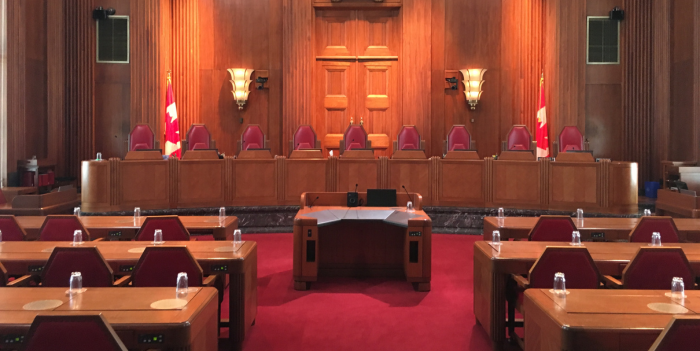
The ABCs of CBD
How Three Little Letters are Disrupting the Food & Beverage Industry
The negative stigma surrounding cannabis in recent years has taken a dramatic shift across the nation as a growing number of states have begun to legalize recreational usage. Concurrent with the legalization trend of cannabis, we have begun to see cannabidiol, better known as CBD, rapidly moving into the mainstream, showing up in products such as soaps, balms, bath salts, creams and food and beverage products. According to an analysis released this year by BDS Analytics and Arcview Market Research, the U.S. market for CBD sales will surpass $20 billion by 2024. With this rapid growth, three major questions have come to the forefront – What is CBD, is it legal and does it work?
What is CBD?
CBD is a chemical compound derived from the cannabis plant. The cannabis plant is made up of two main cannabinoids: CBD and tetrahydrocannabinol (“THC”). Cannabinoids are the major active chemical ingredients in the cannabis plant. THC is the chemical responsible for most of cannabis’ psychological effects and has been known to have beneficial effects for medicinal use such as pain relief and as a sleep aid. CBD is the non-psychoactive portion of the plant which does not elicit the euphoria or “high” that is typically associated with cannabis. Those that once opposed cannabis, are now regularly turning to CBD for relief as the isolated cannabidiol offers some of the same beneficial effects, without the high.
Is It Legal?
Although the 2018 Farm Bill, signed into law last December, makes it legal to grow and market the hemp plant in all 50 states, the FDA has still not approved CBD-infused food and beverage products for consumption, stating it is “committed to science-based decision making.” FDA Principal Deputy Commissioner Dr. Amy Abernethy said, “While we recognize the potential benefits of CBD, questions remain regarding its safety.” So how are CBD-infused food and beverage products showing up on retail shelves when they are illegal at a federal level? For the time being, there has not been any major national players in the space. The FDA has not taken dramatic actions against many companies, as most of them have been engaged in intrastate commerce. However, when it comes to interstate commerce, most banks, insurance companies and other service providers are staying away from national CBD companies in general. There are a few companies that are pushing the envelope, particularly in the beverage sector. As some of these CBD-infused beverage companies push beyond intrastate commerce, it will surely catch the eye of the FDA, which should force the FDA to provide some type of regulatory guidance or framework. However, until this point, the FDA has primarily only sent out warning letters to CBD-infused food and beverage companies regarding “unsubstantiated claims” about their products’ curative properties. It has not sought injunctions to seize these products, yet. Most experts believe that the FDA will soften its stance that CBD is not safe as a food additive, but in the meantime, it is technically illegal. Although there is no clear answer on whether or not there will be ramifications for trailblazers that are currently selling these products in the marketplace, it is clear that you are at a lower risk if you are not making any disease claims (e.g. cures cancer, relieves pain, etc.).
Does It Work?
CBD is not psychoactive and is not meant to provide any type of high. However, many people have reported that consuming it makes them feel less anxious, helps them sleep and even eases joint pain, amongst a variety of other claimed benefits. In many ways, CBD-infused food and beverage product claims are reminiscent of those made by some of what are today’s largest food and beverage brands that emerged in the late 19th century. In the 1880’s, Coca-Cola was originally marketed as a temperance drink and intended to be a patent medicine. During that time, Coca-Cola made numerous unfounded and egregious claims, such as its ability to relieve headaches, indigestion, nerve disorders and even eliminate a morphine addiction. However, that was in the late 1800’s and before the DEA and FDA came to be, so is this really different? Only time will tell as the FDA will surely have to become more prescriptive as these products become more mainstream. The irony in this comparison is that Coca-Cola is currently rumored to be looking into entering the CBD beverage space.
Whether it works or not, the market for CBD products is expected to continue its rapid growth. The problem is, there is no conclusive evidence that it does have many of the claimed health benefits, and even more concerning is that in the current products available, it is not particularly easy to know what you are actually ingesting. CBD-Infused products in general are largely unregulated in the consumer market, with no end-product labeling or composition standards to help shoppers even understand what they are buying.
When it comes down to whether it “works” or not, there are some preliminary studies that show CBD can be an effective treatment for a number of conditions including arthritis, multiple sclerosis, inflammation and most notably anxiety. Esther Blessing, a researcher and psychiatry professor at New York University Langone Health, looked at CBD’s potential to treat anxiety and determined that there is “a lot of promise” in her initial findings. Blessing also concluded that CBD of a specific dose could potentially be as effective as drugs like Valium in reducing anxiety. However, there are not many studies done with a rigorous, double-blind placebo-controlled studies, which is one of the gold standards for demonstrating efficacy. The reason for this is that it has just recently come into the mainstream with the legalization of medicinal and recreational marijuana in some states.
What is important for the everyday consumer to realize is that CBD-infused food and beverage products should not be consumed blindly. Before trying any product, consumers should take measures to determine whether the CBD being used was responsibly sourced and correctly prepared. If not, consumers could be exposed to high levels of lead, pesticides and even THC. Without significant high-quality evidence in human studies there has not been any true benchmark for effective doses, but consumers should be mindful that some people have experienced negative side effects such as nausea, fatigue and general irritability. Since the FDA cannot currently regulate the safety and purity of CBD in food products, because it is currently marketed as a dietary supplement, consumers should do their own research on a product by product basis.
Related Professionals
Get in Touch
Tell us a little about yourself and we will get in touch as soon as we can.

 Back to news articles
Back to news articles



